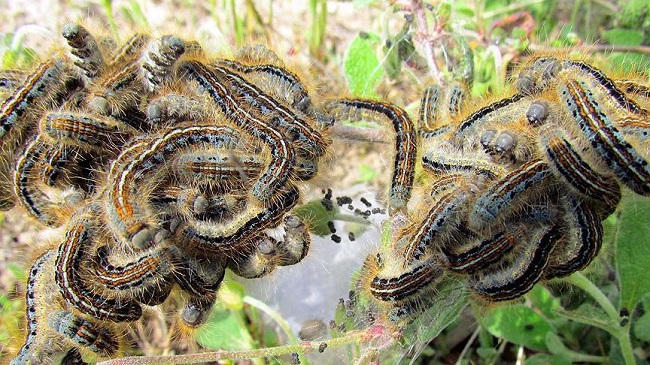The International Centre for Insect Physiology and Ecology (ICIPE) has secured a €7 million funding from the European Union (EU) towards the fight against Fall Armyworms (FAW) in the Eastern Africa region.

Through the European Commission Directorate for International Cooperation and Development (DEVCO), the EU said that the money would be used in the management of FAW in Kenya, Ethiopia, Rwanda, Tanzania and Uganda.
“Over the past 10 years, the EU and ICIPE have formed a solid partnership towards strengthening agriculture as a core and effective component in Africa’s development,” Myra Bernardi, Head of Section Agriculture, Job Creation and Resilience Delegation of the EU to Kenya, said.
She said that the new initiative would enhance livelihoods, resilience and food and nutritional security of smallholder maize growers in eastern Africa through better preparedness and eco-friendly management of the fall armyworm specifically, and invasive species in general.
“We are delighted for this latest support, which will enable us to build on our early results to create a comprehensive package on fall armyworm management, and to work with a range of partners to ensure that the solutions are delivered to communities, to avert the very real threat posed by the pest,” Segenet Kelemu, Director General of ICIPE, said during the ceremony.
Kelemu noted that ICIPE and the EU have enjoyed a productive and strategic partnership on various critical issues relevant to Africa such as bees, animal health and food and nutritional security in general over the past 10 years.
She said that, globally, invasive species are now considered the second most important threat to nature, due to their severe and cross cutting impact on ecosystems, human and animal health, infrastructure, economic and cultural resources.
Such species threaten food and nutritional security by colonising valuable land, negatively impacting agricultural and livestock systems thus reducing domestic supply and restricting international trade as a result of quarantine issues.
They also place human, animal and environmental health at risk through food-borne and vector-transmitted diseases, as well as the effects of often harmful chemical pesticides used in their control.
Further, invasive species destabilise ecosystems, for instance by displacing beneficial local species, and by causing irreparable damage to biodiversity, and contributing to habitat loss.
Economies also suffer due to the significant financial investments required to respond to invasions, and to conduct inspection, monitoring, prevention, control or eradication of invasive pests.
In sub-Saharan Africa (SSA), one of the most susceptible regions, the list of invasive species is long and diverse; their destruction often horrendous.
Since January 2016, the fall armyworm (Spodoptera frugiperda), a very destructive pest that is endemic to the Americas, has been devastating maize and other crops in at least 43 African countries, placing at risk the food and nutrition security, and indeed the very livelihoods, of more than 300 million people.
The larval stage of the fall armyworm feeds on more than 80 plant species, including maize, sorghum, rice, wheat, sugarcane, as well as a variety of horticultural crops thus threatening food and nutritional security, trade, household incomes and overall economies.
ICIPE is promoting the use of push and pull technology that they have been using over the years in controlling stem borers, that is a key pest of cereal crops across most of Africa, and the parasitic striga weeds.
Push-pull involves intercropping cereal crops with insect repellent legumes such as Desmodium genus and planting an attractive forage plant such as Napier or Brachiaria grasses as a border around this intercrop.
The intercrop emits a blend of compounds that repel (push) away stem borer moths, while the border plants emit semi-chemicals that are attractive (pull) to the pests.
DEVCO’s support includes 20 percent contribution from the Centre’s core funds by the Swiss Agency for Development and Cooperation (SDC), Swedish International Development Cooperation Agency (SIDA).
By Duncan Mboyah
